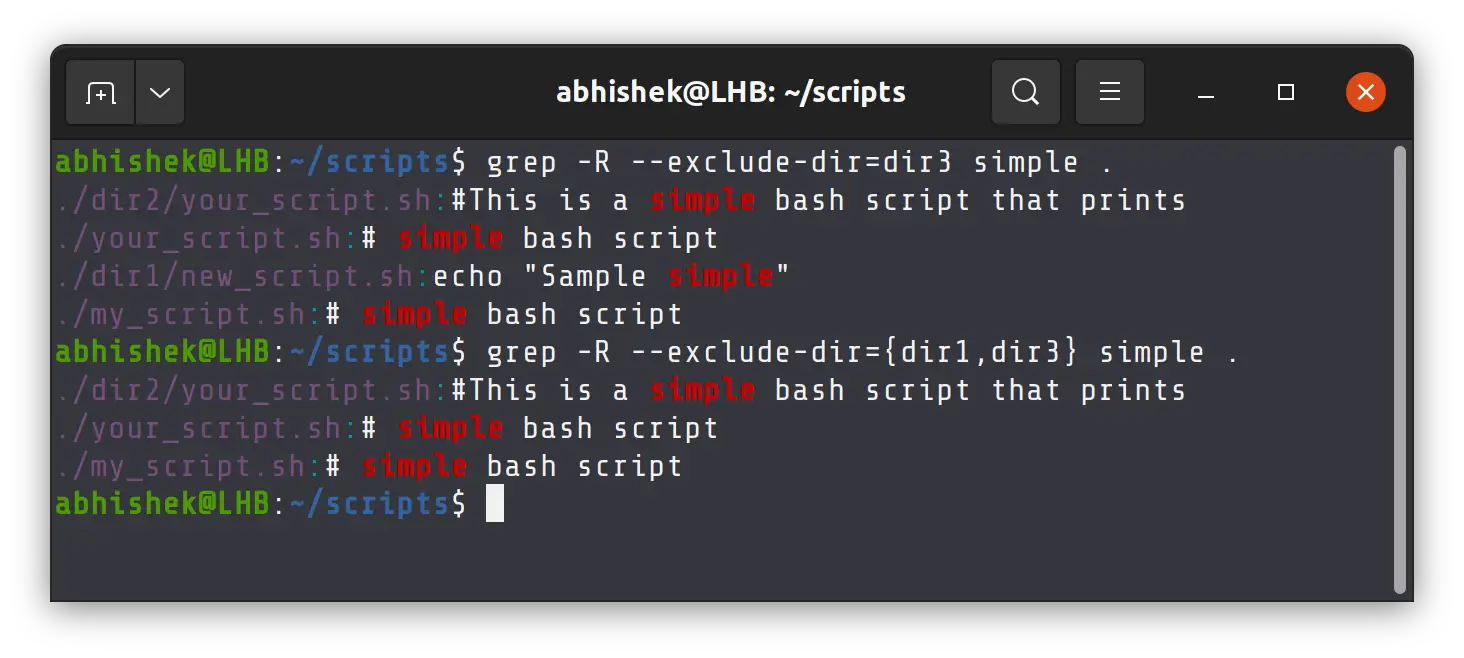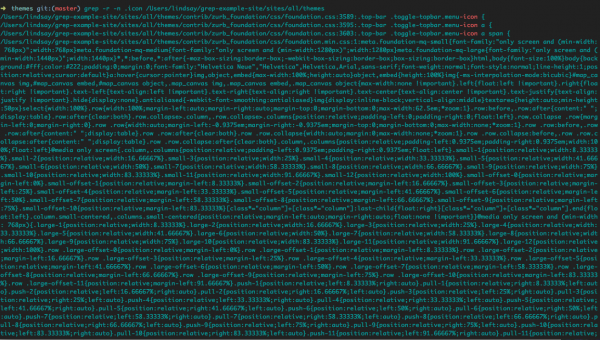
You can create your own arglist while in Vim by running :args file1.js file2.rb file3.py. To see them, run :args.Īrglist does not necessarily have to be populated on start too. The gist of arglist is, if you open Vim with multiple files (ex: vim file1.js file2.rb file3.py), Vim collects these files inside the arglist. The argument list ( arglist) is a Vim feature wherein Vim stores a list of files.
FIND IN FILES GREP RECURSIVE HOW TO
If you're brand new to quickfix and aren't sure how to interact with it, here are some useful quickfix commands to get you started immediately:įor more on how git ls-files works, check out man git-ls-files. In this case, it is a set of search results.Īfter running the search command, run :copen to open the quickfix window. If you aren't familiar with it, think of it as a set of items. The :vim search displays the results in quickfix. If you want to learn about globs, check out. Regex asterisk pattern means zero or more of subsequent pattern (ex: a* means zero or more "a"), while the wildcard does not require a subsequent pattern ( * means any string of any length). rb (like hello_controller.rb, whatever.rb).ītw, do not confuse the wildcards with the asterisk in regex. In this case, *.rb matches any string that ends with. The wildcard, *, matches any string of any length. The globstar, **, searches recursively (it will match things like app/controllers/dir/, app/controllers/some/dir/, app/controllers/file). I use the wildcards * and double wildcards (globstar) ** a lot. The :vim command follows the following syntax:Įnter fullscreen mode Exit fullscreen mode However, if you're working on a small / medium project, it is fast enough.ĭid you know that :vimgrep shorthand is :vim? That's right! A :vim command inside Vim? How meta!Īnyway, from now on, I'll refer to it as :vim in the remainder of this article. The biggest one is that because it loads all the search results into memory, if you have a large search result, it can slow down Vim. The less you have to use your brain for editing, the more you can use it for the more fun stuff! Your brain won't have to switch to a different mode. Using the same, consistent regex engine as Vim itself means there is zero friction between performing a Vim search ( /) and using :vimgrep. This may sound like a con to some people, but to me, this is a huge pro. Second, vimgrep uses Vim's built-in regex engine (remember 'verymagic'? :D). If you ever had to use vanilla Vim (ex: when you're in an SSH, or using someone else's computer, or in your mobile phone, etc), you can be sure that :vimgrep will always be there. There are a few advantages of learning vimgrep.įirst, the :vimgrep command is built into Vim, so you don't have to worry about installing dependencies (and all the issues that might come with it). Just because it is old doesn't mean it is no good. These plugins are convenient and powerful, so why bother learning vimgrep? It is true that the Vim ecosystem today contains many useful plugins, some of them are search-related plugins like ctrlp, denite, and fzf.vim. The ability to perform complex searches quickly can boost your productivity. Maybe in the future I will write about :grep.

This article will cover how to use the :vimgrep command. The former uses an external grep command and the latter is built into Vim. There are two main in-file searches in Vim: :grep and :vimgrep. It turns out that Vim does come with a powerful in-file search right out of the box.

How could I search for the files that contain the string "echo"? How could I search for only the. When I started using Vim, I wished that Vim had a powerful in-file search feature that other popular IDEs / editors have. If you have the latter you could run: zgrep 'pattern' -r -format=gz /path/to/dirĪnyway, as suggested, find + zgrep will work equally well with either version of zgrep: find /path/to/dir -name '*.gz' -exec zgrep - 'pattern' \ īut there's a major downside: you won't know where the matches are as there's no file name prepended to the matching lines. Is the wrapper script, zgrep (zutils) 1.3 Running zgrep -version | head -n 1 will reveal which one (if any) of them is the default: zgrep (gzip) 1.6

The latter is a c++ program and it supports the -r, -recursive option. It doesn't support the -r, -recursive switch. The former is just a wrapper script that calls gzip -cdfq. I have two versions on my system, zgrep from gzip and zgrep from zutils. There's a lot of confusion here because there isn't just one zgrep.


 0 kommentar(er)
0 kommentar(er)
